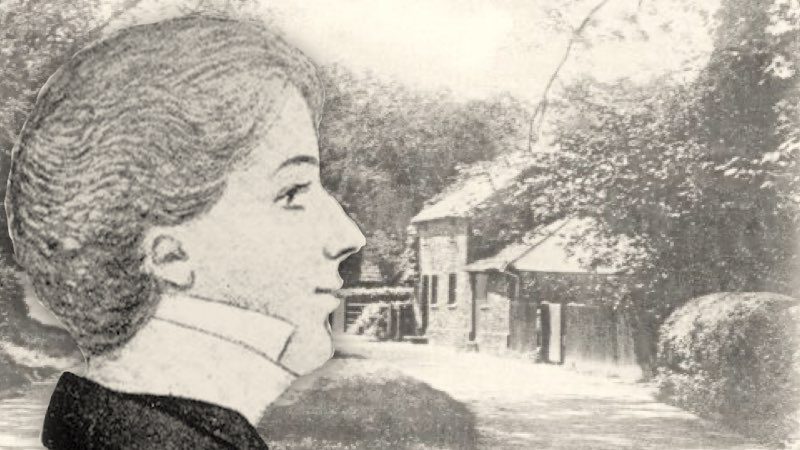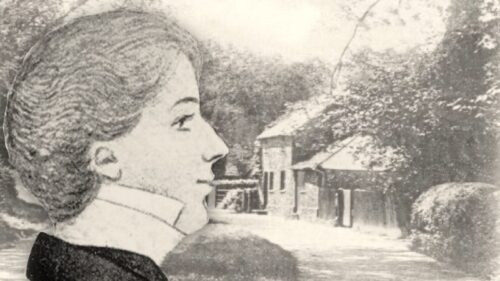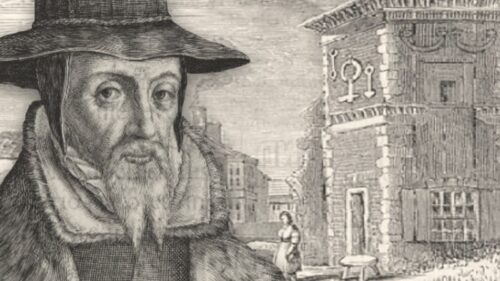-
What Is The Real Gospel?
The ‘gospel’ is claimed and proclaimed by every Christian tradition and denomination and most preachers will happily tell us it means ‘good news’. Yet every denomination’s gospel differs in one way or another, so a sincere enquirer might well be left wondering, “What is the real gospel?”. The Apostle Paul acknowledged there was another gospel, a false gospel, that really is no gospel at all. He knew the difference between grace and works, between salvation accomplished and applied freely by Jesus Christ to God’s elect, and salvation offered conditionally as a possibility to everyone. If salvation is accomplished and applied by Jesus Christ it is God alone who saves sinners and we must acknowledge His sovereignty in salvation. If our gospel offers the possibility of…
-
The Offense Of The Gospel
September 3, 1830 My dear Brother, I intend (D.V.) to be at Oakham on the 14th or 15th, but I hope to be with you on the 14th by the Leicester coach, as I intend to return that way the following week, for I cannot conveniently be absent from so large a parish any longer. But you will be quite willing to part from a troubler of Israel in a few days. I shall give the greatest offence, I have no doubt, in speaking against much of the religion of the present day, which is nothing but the work of Satan, but is very near and dear to the flesh, and you will feel very loath to give it up—as unwilling as the Jews were…
-
Irresistible Grace
A lecture given by George Ella at the Protestant Reformation Society, August 27th, 2009, Wycliffe Hall, Oxford, England Irresistible grace represents the traditional ‘I’ in the acronym ‘TULIP’. So now I shall tease you a little. The name ‘Tulip’ comes from the same Turkish root as ‘turban’ and the flower of that name was introduced by the Turks to Europe as a symbol of the spreading Ottoman Empire, or the TULIP ERA as the Islamising of Europe was called. The popular strains Tulipa turkestanica and Tulipa kurdica point to this. Why the Turkestan turban-shaped talismanic Tulip and Turkoman black merchants robes were chosen as Christian symbols of faith and ministry by post-Reformation parties, must be the subject of another lecture. The T-U-L-I-P, beautiful as it…
-
An Everlasting Task For Arminians
A Letter To Mr. Edward Smyth, Formerly Of Trinity College, Dublin. To Which Are Added, Lines In Praise Of Free Will I. THE PREFACE A Few Hints To Them That Are Sanctified By God The Father, Preserved In Christ Jesus, And Called. Beloved, in reading the word of God, it becomes us ever to remember that the sacred pages are a transcript of the perfections of the infinite God, who is the "high and lofty One that in habiteth eternity, whose name is Holy;" a Being whose omniscient eye beholds the end from the beginning, who worketh all things after the counsel of his own will, and will do all his pleasure; who "bringeth the counsel of the heathen to nought, and maketh the devices…
-
John Collet Ryland (1723-1792) And The Restructuring Of Baptist History
A number of modern writers who preach common-grace and duty-faith as redemptive means in evangelisation, view John Collet Ryland as a Hyper-Calvinist. Such a person, a recent BOT article tells us, does not appeal to sinners, “directly encouraging them to trust him (Christ), and appealing to them to do so now.” Obviously, given such criteria, Ryland’s critics know nothing of his extensive gospel ministry or are deliberately introducing a new conception of what ‘directly encouraging sinners’ means. Most of their ‘encouragement’ is found in their slogan ‘God’s provisions and man’s agency’ which stresses the need for man to use all his supposed natural abilities and duties to grasp out and take God’s provisions in Christ. Ryland affirmed that salvation was all of grace. Only then…
-
15 Bible Doctrine – What Is The Framework Of Sovereign Grace?
A Transcript Of The Video Study The Framework Of Sovereign Grace is a diagram I drew up many years ago in an attempt to illustrate God’s masterplan for the ages. It has actually become the backdrop for my entire teaching ministry, as it broadly outlines the basic parameters of Bible doctrine. In fact, it is within the context of this framework that all fields of knowledge, or departments of academic disciplines, may be understood from a biblical perspective, and therefore this framework serves as the basic construct around which one may develop his/her worldview. For this study, I would like to explain how the Framework of Sovereign Grace was formed. The diagram is based upon a single analogy, used by the Apostle Paul, in Romans…










